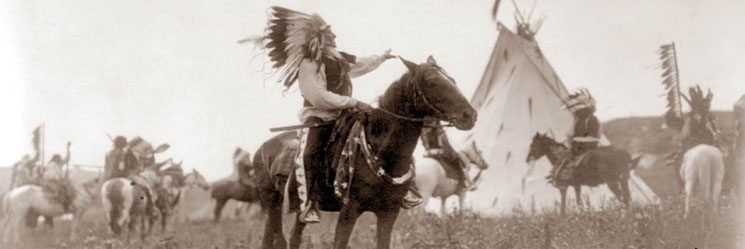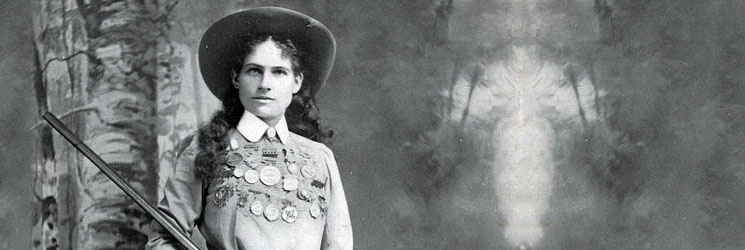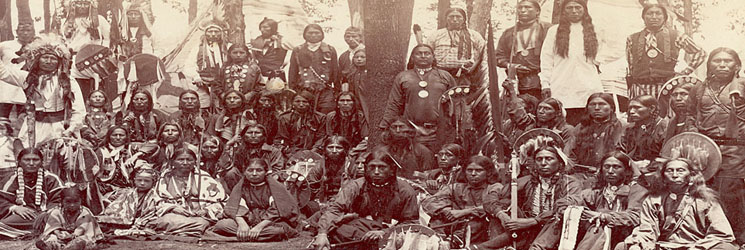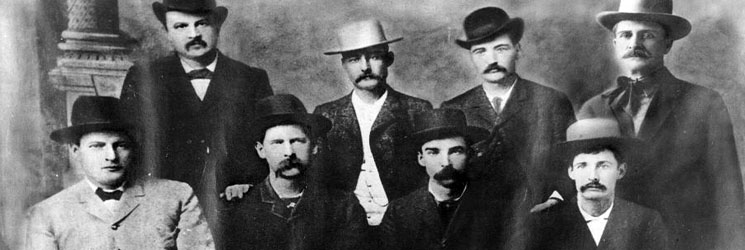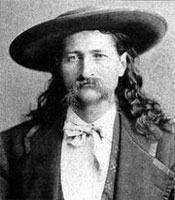
James Butler Hickok was born in Troy Grove, Illinois in 1837. He grew up to be the famous Wild West shootist, Wild Bill Hickok.
He left home in 1855 for the Kansas frontier working irregularly as a farmhand, hired gun and stagecoach driver. During the Civil War, he was a civilian scout and wagon master.
After the war, he continued as scout for General Philip Sheridan and Winfield Scott Hancock as well as a guide for hunting parties. He scouted for Custer when Custer was a mere Lieutenant at Fort Riley, Kansas. In 1868, Hickok became sheriff of Ellis County, Kansas; in 1871 he was city marshal of Abilene, Kansas.
Up until this time, between scouting and being a lawman, Hickok had come to kill quite a few people. After he accidentally shot his own deputy while in a gunfight, it is said that Hickok never fired a shot on another human being.
After that incident he roamed the West and his reputation as a gunman grew despite his inactivity. In 1870 he supposedly married “Calamity Jane” (Martha Jane Canary) but there are no records of this. In 1876, while playing poker at the No. 10 Saloon in Deadwood Dakota Territory, he had been just dealt a queen and two pairs, aces and eights, when a drifter named Jack McCall walked up behind him and fired a shot from his .45 Colt into the back of Hickok’s head. The bullet exited Hickok’s cheek and wounded another player as well. McCall had lost $110 in poker to Hickok the previous day.
James Butler Hickok was buried at Ingleside, near Deadwood but his body was transferred to Deadwood’s Mt. Moriah Cemetery in 1879. In 1903, according to her last wish, “Calamity Jane” was buried next to him.
As for Jack McCall: McCall claimed he had shot Hickok in revenge for killing his brother back in Abilene, Kansas and said he’d do it all over again if given the chance. The jury returned a verdict of “not guilty”.
McCall stayed in Deadwood for a few days then headed to Wyoming, bragging that he had killed the famous Wild Bill Hickok. Less than a month later, the trial held in Deadwood was declared invalid because the town was located in Indian Territory.
The U.S. Deputy Marshal in Laramie, Wyoming heard McCall’s bragging and arrested him on August 29th. Charged anew with the murder, McCall was taken to Yankton, South Dakota to stand trial on December 4, 1876. Wild Bill’s brother, Lorenzo Butler Hickok, had traveled from Illinois to attend. On December 6th, McCall was found guilty.
On March 1, 1877, Jack McCall was marched up the hanging platform; the black hood was drawn over his head and when the noose was placed around his neck, McCall allegedly said, “Draw it tighter, Marshal.” At 10:10 a.m. McCall was hanged, the first to be legally executed in Dakota Territory. Regarding McCall’s claim that he shot Hickok out of revenge for the killing of his brother, it was later discovered that McCall never had a brother.
McCall was buried in the Yankton Catholic cemetery. The cemetery was moved in 1881 to make room for the Territorial Insane Hospital, so when McCall’s body was exhumed, it was discovered that he had been buried with the noose still around his neck. His remains were reburied in an unmarked grave in the Yankton Cemetery, but the exact location was lost over time.

